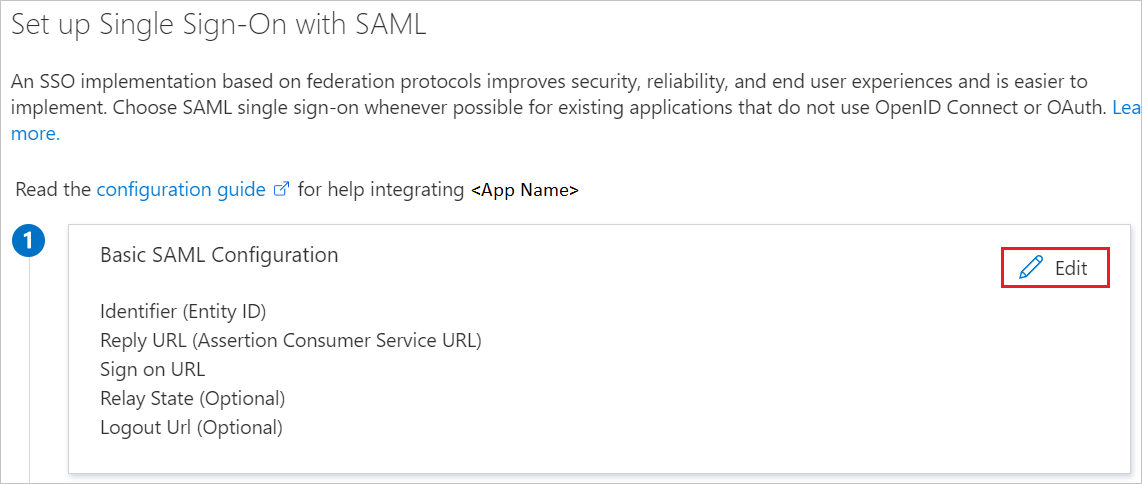Events
Apr 9, 3 PM - Apr 10, 12 PM
Code the Future with AI and connect with Java peers and experts at JDConf 2025.
Register NowThis browser is no longer supported.
Upgrade to Microsoft Edge to take advantage of the latest features, security updates, and technical support.
In this article, you learn how to integrate Vtiger CRM (SAML) with Microsoft Entra ID. When you integrate Vtiger CRM (SAML) with Microsoft Entra ID, you can:
The scenario outlined in this article assumes that you already have the following prerequisites:
In this article, you configure and test Microsoft Entra SSO in a test environment.
To configure the integration of Vtiger CRM (SAML) into Microsoft Entra ID, you need to add Vtiger CRM (SAML) from the gallery to your list of managed SaaS apps.
Alternatively, you can also use the Enterprise App Configuration Wizard. In this wizard, you can add an application to your tenant, add users/groups to the app, assign roles, and walk through the SSO configuration as well. Learn more about Microsoft 365 wizards.
Configure and test Microsoft Entra SSO with Vtiger CRM (SAML) using a test user called B.Simon. For SSO to work, you need to establish a link relationship between a Microsoft Entra user and the related user in Vtiger CRM (SAML).
To configure and test Microsoft Entra SSO with Vtiger CRM (SAML), perform the following steps:
Follow these steps to enable Microsoft Entra SSO.
Sign in to the Microsoft Entra admin center as at least a Cloud Application Administrator.
Browse to Identity > Applications > Enterprise applications > Vtiger CRM (SAML) application integration page, find the Manage section and select Single sign-on.
On the Select a Single sign-on method page, select SAML.
On the Set up Single Sign-On with SAML page, select the pencil icon for Basic SAML Configuration to edit the settings.

On the Basic SAML Configuration page, perform the following steps:
a. In the Identifier (Entity ID) text box, type a URL using the following pattern:
https://<CUSTOMER_INSTANCE>.od1.vtiger.com/sso/saml?acs
b. In the Sign on URL text box, type a URL using one of the following patterns:
| Sign on URL |
|---|
https://<CUSTOMER_INSTANCE>.od1.vtiger.com |
https://<CUSTOMER_INSTANCE>.od2.vtiger.com |
https://<CUSTOMER_INSTANCE>.od1.vtiger.ws |
Note
These values aren't real. Update these values with the actual Sign on URL and Identifier. Contact Vtiger CRM (SAML) Client support team to get these values. You can also refer to the patterns shown in the Basic SAML Configuration section.
On the Set up Single Sign-On with SAML page, in the SAML Signing Certificate section, find Certificate (Base64) and select Download to download the certificate and save it on your computer.

On the Set up Vtiger CRM (SAML) section, copy the appropriate URL(s) based on your requirement.

Follow the guidelines in the create and assign a user account quickstart to create a test user account called B.Simon.
To configure single sign-on on Vtiger CRM (SAML) side, you need to send the downloaded Certificate (Base64) and appropriate copied URLs from the application configuration to Vtiger CRM (SAML) support team. They set this setting to have the SAML SSO connection set properly on both sides.
In this section, a user called Britta Simon is created in Vtiger CRM (SAML). Vtiger CRM (SAML) supports just-in-time user provisioning, which is enabled by default. There's no action item for you in this section. If a user doesn't already exist in Vtiger CRM (SAML), a new one is created after authentication.
In this section, you test your Microsoft Entra single sign-on configuration with following options.
Select Test this application, this option redirects to Vtiger CRM (SAML) Sign-on URL where you can initiate the login flow.
Go to Vtiger CRM (SAML) Sign-on URL directly and initiate the login flow from there.
You can use Microsoft My Apps. When you select the Vtiger CRM (SAML) tile in the My Apps, this option redirects to Vtiger CRM (SAML) Sign-on URL. For more information about the My Apps, see Introduction to the My Apps.
Once you configure Vtiger CRM (SAML) you can enforce session control, which protects exfiltration and infiltration of your organization’s sensitive data in real time. Session control extends from Conditional Access. Learn how to enforce session control with Microsoft Defender for Cloud Apps.
Events
Apr 9, 3 PM - Apr 10, 12 PM
Code the Future with AI and connect with Java peers and experts at JDConf 2025.
Register Now